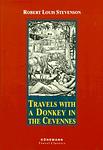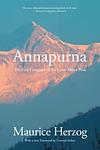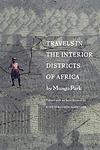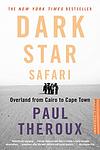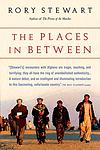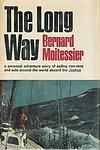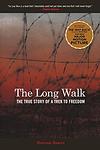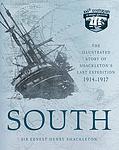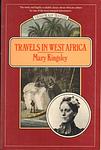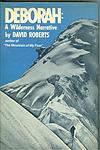The Greatest "Adventure, Autobiography" Books of All Time
Click to learn how this list is calculated.
This list represents a comprehensive and trusted collection of the greatest books. Developed through a specialized algorithm, it brings together 300 'best of' book lists to form a definitive guide to the world's most acclaimed books. For those interested in how these books are chosen, additional details can be found on the rankings page.
Genres
The Adventure genre is characterized by stories that take readers on thrilling journeys filled with danger, excitement, and unexpected twists and turns. These books often feature brave protagonists who embark on quests, explore new territories, and face challenges that test their physical and mental limits. Adventure stories can be set in any time period or location, from ancient civilizations to futuristic worlds, and can include elements of romance, mystery, and suspense. Whether it's a treasure hunt, a survival story, or a battle against evil forces, Adventure books offer readers an escape into a world of excitement and adventure.
Autobiography is a literary genre that focuses on the life story of the author. It is a first-person account of the author's experiences, thoughts, and emotions, often including significant events and milestones that have shaped their life. Autobiographies can be written by anyone, from famous public figures to ordinary people, and can cover a wide range of topics, including personal growth, career achievements, struggles, and relationships. This genre provides readers with a unique insight into the author's life and perspective, making it a popular and engaging category of books.
Countries
Date Range
Reading Statistics
Click the button below to see how many of these books you've read!
Download
If you're interested in downloading this list as a CSV file for use in a spreadsheet application, you can easily do so by clicking the button below. Please note that to ensure a manageable file size and faster download, the CSV will include details for only the first 500 books.
Download-
1. The Worst Journey in the World by Apsley Cherry-Garrard
"The Worst Journey in the World" is a gripping account of the Terra Nova Expedition to the South Pole in 1910-1913. The book vividly describes the perilous journey undertaken by a team of explorers, their struggles with brutal weather conditions, and the tragic loss of their leader and four other members on their return from the Pole. The narrative is not only about physical survival in harsh conditions, but also about the psychological toll of such an expedition, making it a timeless testament to human endurance and spirit.
-
2. Into Thin Air by Jon Krakauer
This gripping non-fiction book recounts the tragic events of the 1996 Mount Everest disaster. The author, a journalist and experienced climber, was part of a commercial expedition to summit Everest. The expedition soon turned disastrous due to a severe storm, leading to the death of several climbers from various teams. The book provides a vivid, personal account of the harrowing ordeal, detailing the physical and psychological challenges faced by climbers at high altitudes, as well as the ethical and commercial aspects of mountaineering expeditions.
-
3. Into the Wild by Jon Krakauer
This striking narrative non-fiction tells the real-life story of a young man who turns his back on society to live in the Alaskan wilderness. Despite a privileged background and a promising future, he donates his savings to charity, abandons his car and most of his possessions, and embarks on a journey into the wild. His solitary existence in the wild, his struggles for survival, and his untimely death provide a profound exploration of the allure of wilderness and the human yearning for solitude and self-discovery.
-
4. Seven Years in Tibet by Heinrich Harrer
This book is a travel memoir that recounts the author's escape from a British internment camp in India during World War II and his subsequent journey through the Himalayas to Tibet, where he becomes a tutor and friend to the Dalai Lama. The book provides a detailed account of Tibetan culture, customs, and the political turmoil leading up to the Chinese invasion, as seen through the eyes of a foreigner who spent seven years living there.
-
5. Papillon by Henri Charrière
The book is a memoir that chronicles the harrowing experiences of a Frenchman who is wrongfully convicted of murder and sentenced to life in the penal colonies of French Guiana. Determined to regain his freedom, he makes numerous escape attempts, facing incredible odds and enduring brutal conditions. His indomitable spirit and will to survive lead him through a series of adventures and misadventures, including solitary confinement, a stint in a leper colony, and living with indigenous tribes. Throughout his ordeal, his nickname, derived from the butterfly tattoo on his chest, becomes a symbol of his unyielding quest for liberty.
-
6. Man-Eaters of Kumaon by Jim Corbett
The book is a collection of true stories about the author's hunting experiences in India, specifically his encounters with man-eating tigers and leopards in the Kumaon region. The author, a renowned hunter, was often called upon to kill these man-eaters when they became a threat to local villages. The book provides thrilling accounts of his hunts, as well as his observations on the behavior of these animals and his respect for their power and cunning.
-
7. Travels with a Donkey in the Cévennes by Robert Louis Stevenson
This book is a travelogue detailing the author's 12-day, 120-mile solo journey through the sparsely populated and impoverished areas of the Cévennes mountains in south-central France. The narrative focuses on his interactions with the locals, the picturesque landscapes, and his humorous struggles with his stubborn travel companion, a donkey named Modestine. The journey is reflective and introspective, allowing the author to muse on the human condition, religion, and the simple joys of travel.
-
8. Arabian Sands by Wilfred Thesiger
This book is a detailed account of the author's travels across the Arabian Peninsula during the 1940s. The narrative provides an in-depth look into the Bedouin way of life, their customs, and the harsh desert environment they inhabit. The author's journey takes him through the Empty Quarter, one of the most inhospitable places on earth, challenging his endurance and resilience. The book is a testament to the author's love for adventure and his admiration for the Bedouin people, offering readers a glimpse into a world that has largely disappeared.
-
9. Roughing It by Mark Twain
This book is a semi-autobiographical travelogue that chronicles the author's journey across the American West to Nevada. It covers his experiences as a miner, newspaper reporter, and lecturer, and includes humorous and insightful observations about the people, places, and culture he encounters. The narrative also provides vivid descriptions of the natural landscape, as well as commentary on the social and political issues of the time.
-
10. Annapurna by Maurice Herzog
This book recounts the incredible true story of a French expedition to the Himalayas in the early 1950s. The team, led by an experienced mountaineer, faces extreme weather conditions, challenging terrains, and life-threatening situations in their quest to conquer the Annapurna peak. Despite losing fingers and toes to frostbite, the leader becomes the first person to reach the summit of an 8,000-meter peak, marking a significant milestone in mountaineering history. The narrative is not just about the physical journey but also delves into the psychological and emotional struggles of the climbers.
-
11. Farthest North by Fridtjof Nansen
"Farthest North" is a riveting firsthand account of a polar expedition undertaken in the late 19th century. The author, a Norwegian explorer, recounts his daring attempt to reach the North Pole by allowing his specially designed ship to be frozen into the Arctic ice and carried by the drift. The narrative includes fascinating descriptions of the Arctic environment, thrilling tales of survival against harsh conditions, and scientific observations. The expedition, although it did not reach the North Pole, achieved the highest latitude to that date and contributed significantly to Arctic exploration.
-
12. Travels in the Interior Districts of Africa by Mungo Park
"Travels in the Interior Districts of Africa" is a detailed account of the author's exploration into the heart of Africa at the end of the 18th century. The narrative provides an in-depth look at the geography, flora, fauna, and local cultures of the region at the time. The author, a Scottish explorer, recounts his journey along the Niger River, his encounters with different African tribes, his experiences of being captured and enslaved, and his eventual escape. The book offers a unique perspective on African society and the European perception of Africa during this period.
-
13. My Journey to Lhasa by Alexandra David-Neel
This book is a fascinating travel memoir documenting the author's daring and perilous journey to Lhasa, the capital of Tibet, in 1923. Disguised as a beggar and accompanied by a young Tibetan monk, she traversed harsh terrains, braved extreme weather conditions, and evaded authorities who forbade foreigners from entering the city. Throughout her journey, she encountered various aspects of Tibetan culture, religion, and way of life, offering an insightful and vivid portrayal of a land and people largely unknown to the outside world at that time.
-
14. Dark Star Safari by Paul Theroux
In this travel memoir, the author recounts an overland journey across Africa, starting from Cairo and ending in Cape Town. Along the way, he traverses a continent rich with diverse cultures, landscapes, and histories, while also confronting the stark realities of poverty, political turmoil, and the complex legacies of colonialism. His encounters with aid workers, missionaries, and locals provide a nuanced perspective on the challenges and beauty of Africa, as well as a critical look at the effects of foreign aid and development. The narrative is a blend of adventure, reflection, and social commentary, revealing the author's deep fascination with the continent and its people.
-
15. The Places In Between by Rory Stewart
"The Places In Between" is a memoir by Rory Stewart about his journey on foot across Afghanistan in 2002, shortly after the fall of the Taliban. He travels from Herat to Kabul, encountering a variety of people and landscapes along the way. The book provides a unique insight into the culture and history of Afghanistan, as well as the challenges faced by the country in the aftermath of war. Stewart's writing is both lyrical and informative, making for a compelling read.
-
16. The Long Way by Bernard Moitessier
The book is a captivating narrative of a sailor's solo circumnavigation of the globe during a historic yacht race. Rejecting the trappings of fame and competition, the sailor chooses to continue sailing beyond the finish line, embracing the sea's vastness and his deep connection with nature. His journey becomes not just a test of physical endurance but a spiritual quest, as he reflects on life, the modern world, and the harmony found in simplicity. Through storms, wildlife encounters, and the solitude of the open ocean, the sailor's tale is a profound meditation on the human spirit and our relationship to the Earth.
-
17. Slowly Down The Ganges by Eric Newby
This travelogue recounts the author's adventurous journey down the Ganges, one of the great rivers of the Indian subcontinent. With humor and keen observation, the narrative captures the diverse landscapes and vibrant cultures encountered along the riverbanks. Through a series of mishaps, challenges, and encounters with local inhabitants, the author paints a vivid picture of life in India, reflecting on its history, religion, and the profound significance of the river to the people who live along its course. The book is as much a personal quest as it is an exploration of a place and its people, offering insights into the complexities of a rapidly changing country while navigating the waters of one of its most sacred rivers.
-
18. The Long Walk by Slavomir Rawicz
"The Long Walk" is a harrowing narrative of a group of prisoners who escape from a Siberian gulag during World War II, and undertake a treacherous journey through the harsh Siberian wilderness, the Gobi desert, the Himalayas, and finally to India. The story is based on the author's own experiences and portrays the indomitable human spirit, survival against all odds, camaraderie, and the will to freedom.
-
19. No Picnic on Mount Kenya by Felice Benuzzi
This book is a true story about three Italian prisoners of war in British East Africa during World War II who escape from their POW camp to climb Mount Kenya, Africa's second highest mountain. The narrative is not only about their audacious adventure, but also about the power of the human spirit, camaraderie, and the freedom of the wild. After their climb, they voluntarily return to their POW camp, where they are punished but also celebrated for their incredible feat.
-
20. South by Ernest Shackleton
"South" is a gripping account of an ill-fated Antarctic expedition led by a brave explorer. The journey takes a disastrous turn when their ship gets trapped and eventually crushed by ice, forcing the crew to abandon ship and embark on a harrowing journey over sea and land in a desperate bid for survival. The book is a testament to the crew's indomitable spirit and the leadership that kept them alive against all odds.
-
21. Travels in West Africa by Mary Kingsley
This book is a captivating travelogue by a Victorian-era Englishwoman who explores the uncharted territories of West Africa. The author, a pioneering female explorer, recounts her journeys through remote regions, encountering diverse cultures, dangerous wildlife, and challenging climates. Her observations, insights, and experiences provide a unique perspective on the colonial attitudes of her era, as well as the rich cultural tapestry and natural beauty of West Africa. The book serves as both an adventure story and a historical document, offering a woman's perspective on exploration and colonialism.
-
22. A Wilderness Narrative by David Roberts
"A Wilderness Narrative" is an engaging account of a man's journey through the American wilderness. The author vividly describes his experiences and observations as he treks through various landscapes, including mountains, forests, and deserts. The book serves as a reflection on the relationship between humans and nature, exploring themes of solitude, survival, and the sublime beauty and harsh realities of the natural world. It's a compelling exploration of the American wilderness and the profound impact it can have on the human spirit.
-
23. Everest: The West Ridge by Thomas Hornbein
This book is a firsthand account of a daring and historic climb of Mount Everest via the treacherous West Ridge - a route that had never been successfully ascended before. The narrative vividly describes the extreme physical and mental challenges faced by the climbers, the breathtaking beauty of the Himalayas, and the camaraderie and teamwork that was essential for survival. The author's detailed and compelling recounting of the expedition offers an intimate look at the perils, triumphs, and the sheer magnitude of human endurance in one of the harshest environments on Earth.
-
24. Journey Without Maps by Graham Greene
This travelogue details the author's trek through the interior of Liberia, a journey undertaken in the 1930s. The narrative provides a vivid account of the people, culture, and harsh realities of life in the African interior, as well as the author's own introspections and experiences. The journey is both a physical exploration of a little-known part of the world and a philosophical exploration of the author's own beliefs and values.
-
25. The Royal Road to Romance by Richard Halliburton
This travel memoir recounts a young man's adventurous journey around the world. Despite having a comfortable life, he decides to leave everything behind to explore different cultures and landscapes. His travels take him to places such as India, where he swims in the sacred Ganges River, and Mount Olympus, where he encounters bandits. His experiences range from being imprisoned in Gibraltar to being shot at in Mexico, all while capturing the essence of the early 20th-century world.
Reading Statistics
Click the button below to see how many of these books you've read!
Download
If you're interested in downloading this list as a CSV file for use in a spreadsheet application, you can easily do so by clicking the button below. Please note that to ensure a manageable file size and faster download, the CSV will include details for only the first 500 books.
Download





